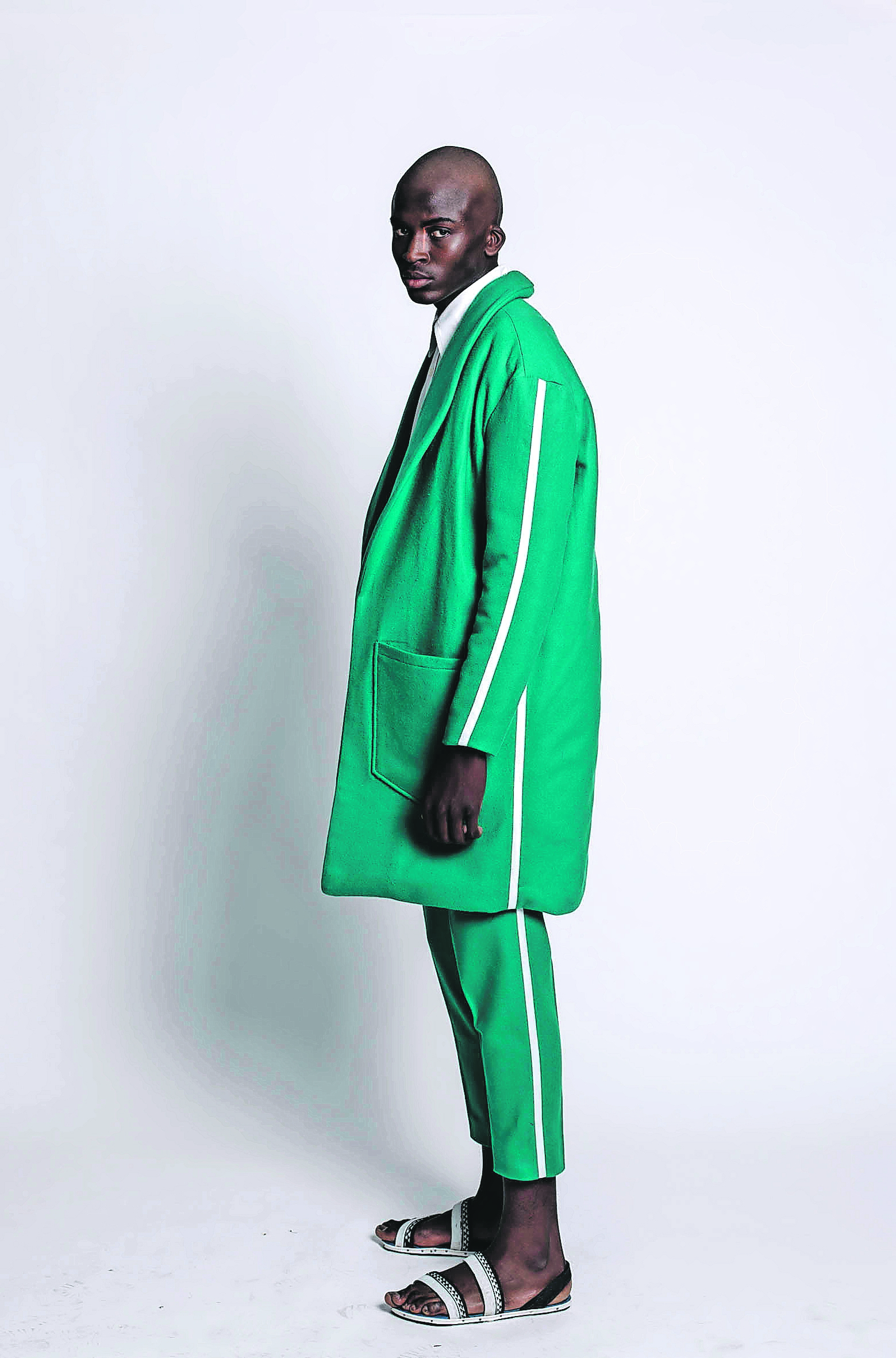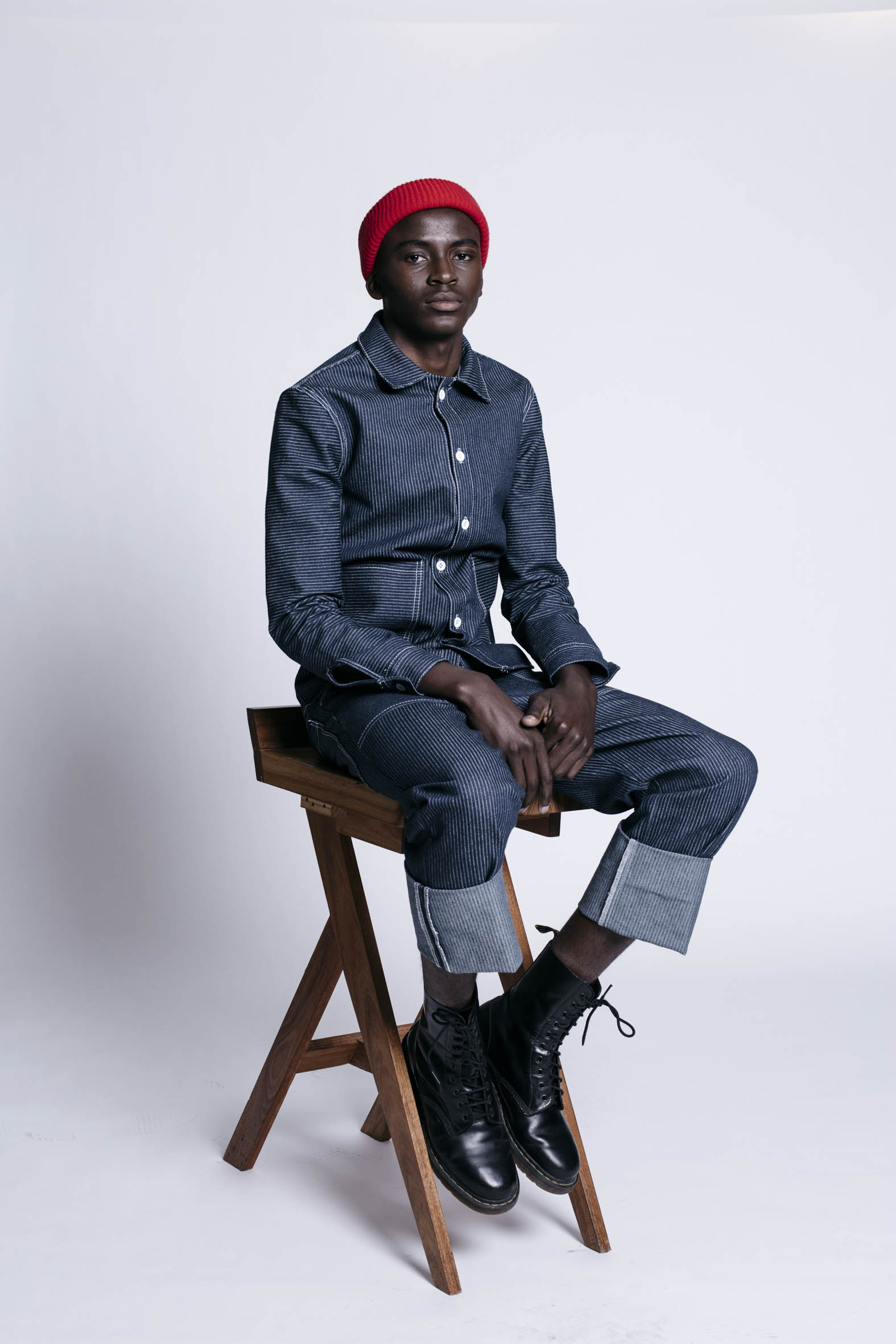Street cred:Sakhile Cebekhulu finds inspiration for his clothes in the 'deeply cultural' spaces of Jo'burg.
Dabbling in the world of all things colourful, considered and textile, Johannesburg-based visual artist and clothing designer Sakhile Cebekhulu is all about crafting his dreams into reality.
Influenced by his upbringing in the multicultural, cut-throat metropolis that is Johannesburg, Sakhile recently showcased his first range of clothing at this year’s Mercedes-Benz Johannesburg Fashion Week.
The range goes by the title of Zulu Lam, and is derived from his clothing label, Sash.

[Zulu Lam is a range that incorporates the use of bright colours that reflect the vibrancy of Jo’burg. (Photo: Kgomotso Tleane)]
His journey from sketchbook to the runway has been punctuated with bold, oscillating career moves — and attempts to quell his parents’ fears of his going broke and accusations of dysfunctionality that often come with being a black artist.
After studying visual art at high school, and then going on to study fashion design at a tertiary institution, Sash (as Sakhile is also known), abandoned his dreams of becoming a fashion designer to reignite his love for visual arts. Last year, he formed part of the Turbine Art Fair’s Fresh Produce Programme, a moment that affirmed and catapulted his career.
Yet despite the success he garnered as a visual artist, Sakhile’s passion for well-made, accessible and authentically South African clothing couldn’t be quenched.
“The art came at the right time because, through my success at the Turbine Art Fair, I was able to rent out a studio and fund my fashion endeavours. I started making clothes and initially had no theme for the range. I was just committing myself to making clothes.
“I realised how I was gathering a lot of inspiration from the streets. And I don’t mean the typical streets of Johannesburg but [the] unpopular yet deeply cultural spaces like Jeppestown — seeing taxi drivers and observing the juxtaposition of their traditional attire and lifestyle with the modernity of the city.”
Having worked with photographer Kgomotso Neto Tleane in 2016 during the Turbine Art Fair, the pair brought their love for taxis and all things Zulu (aka Nkabi aesthetics) to collaborate on a lookbook that contrasted demure poses with brightly coloured garments.
A love letter to the struggles and triumphs of black people, the label’s name takes what was once a demeaning nickname, “Sash Omnyama” and transforms it into a proud assertion of his identity.
His use of industrial fabrics such as car-seat materials is an ode to the ingenuity of his earlier days of struggling to afford material as a student.
Combining the vibrancy and energy of the city with the traditional motifs of Zulu men navigating and defining spaces for themselves in Johannesburg, Zulu Lam is both a reclamation and declaration. On the one hand Zulu Lam’ is about how Sakhile reclaims his identity as a Johannesburg-born contemporary Zulu man, while on the other it translates to “my world” — a declaration of how clothing helped Sakhile to define his own identity and conditions for expression.

[Zulu Lam shows how a simple piece of clothing can be transformed through the detail. (Photo: Kgomotso Tleane)]
Citing Japanese designer Yohji Yamamoto as a major influence, Zulu Lam is a carefully considered range that celebrates the simple yet profound art of cut, pattern and tailoring techniques.
“Everything looks basic, but because of the cut a simple pair of jeans is transformed, purely because of attention to detail. A big component of what I do is about creating for my people, everyday people. Because a lot of what South African fashion has become is inaccessible. I wanted to do something that resonates with the people in the streets but still has the quality and precision of high-end ranges.’’
Joining a legion of young people who are affirming their space and identity through creative outputs, Zulu Lam is about sharing stories and paying homage to the marvels and complexities that shape black people. Zulu Lam is “sankofa” in practice — looking to the past to build and define a new and contemporary identity.